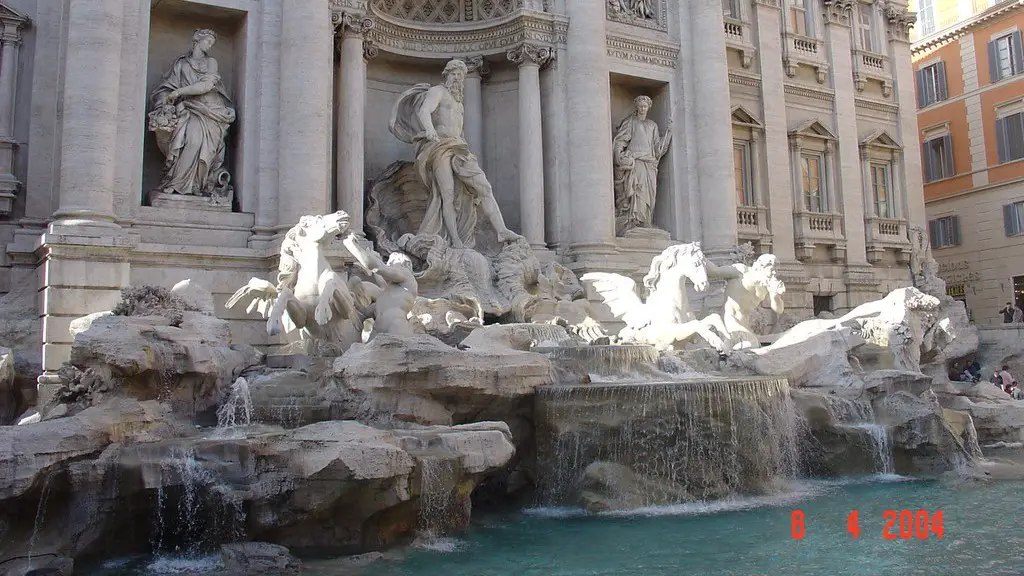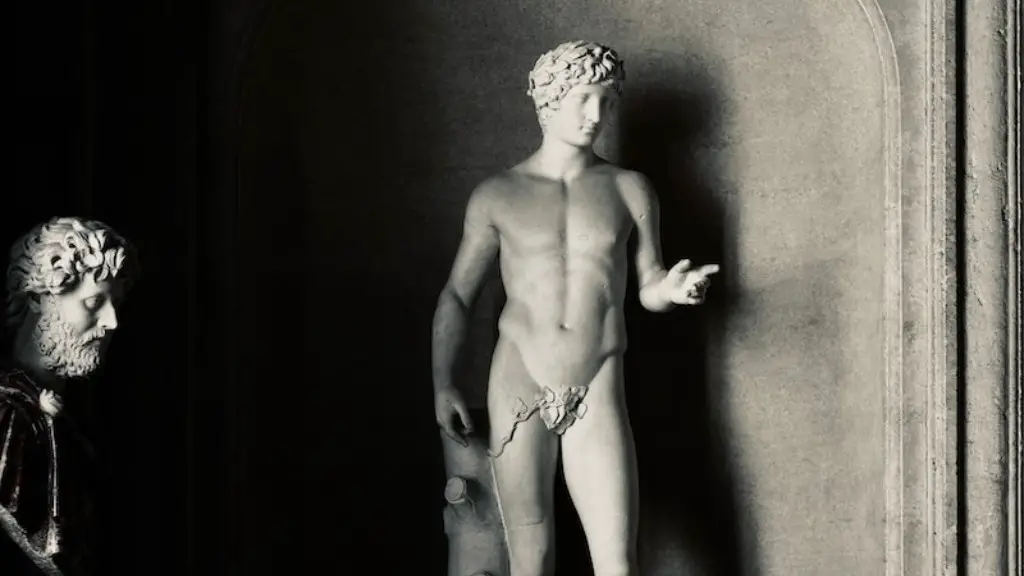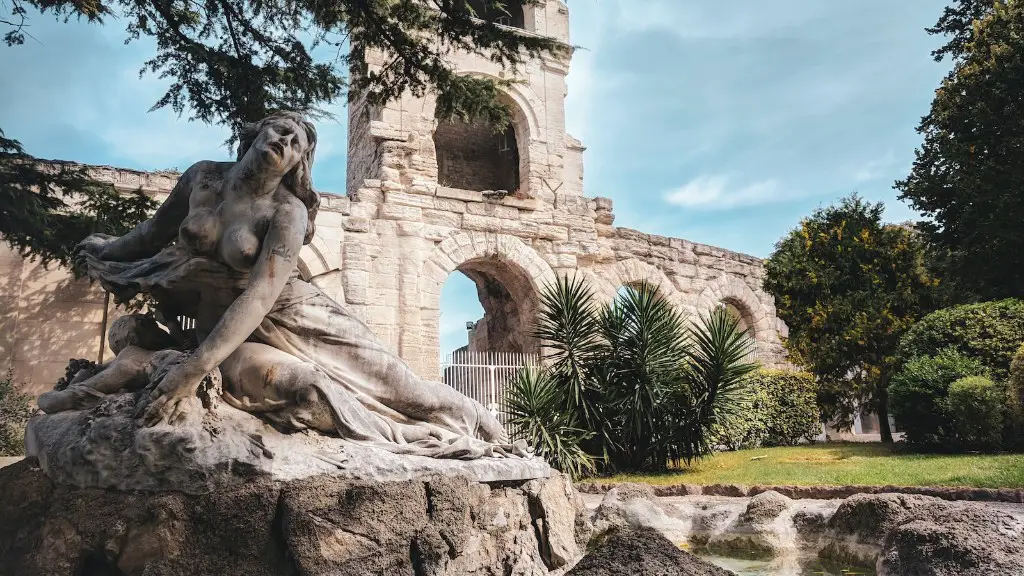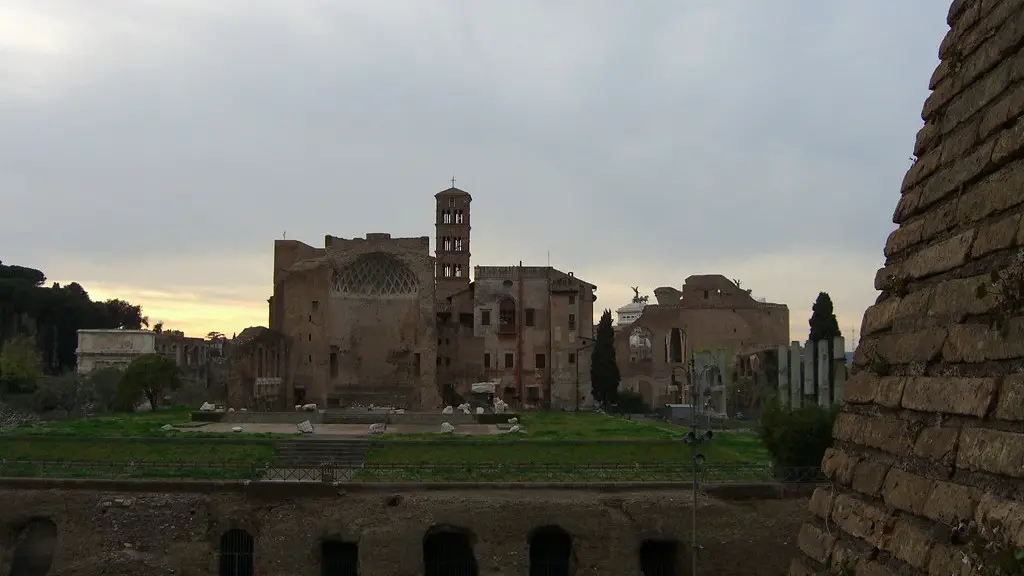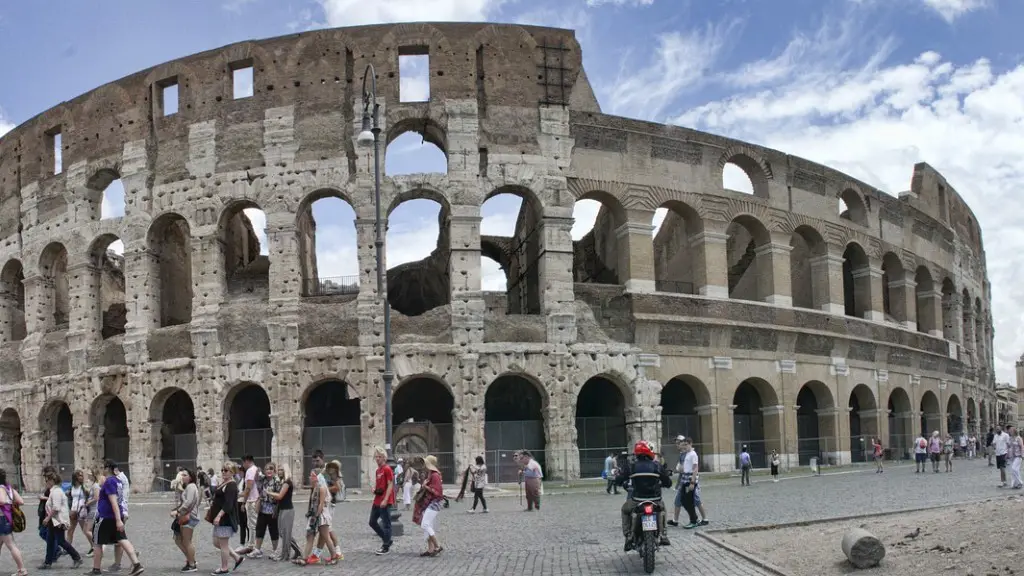To fully understand the significance of religion and sacred cults in Ancient Rome, we must first explore the fact that religious rituals were deeply ingrained in the Roman way of life. Each city-state in the Roman Republic was considered to have their own set of gods and goddesses, but the general Roman pantheon was made up of the key gods Zeus, Juno, and Neptune, amongst others. Religion was an integral part of politics as the gods were believed to have a hand in influencing political decisions, with the Roman senate often seeking consults in impending votes. Great attention and care was given to religious ceremonies and rituals in order to please the gods, many of which were celebrated in the Circus Maximus in Rome. Religion played a prominent role in the daily activities of the Romans and was also essential in observing justice, acting as a cohesive force, and providing a guarantor of individual and state safety.
The religion of Ancient Rome varied from its original tribal beliefs to Etruscan religion, through the introduction of more cultures from different regions like the Greeks. As such, Rome had a number of gods whose roles and powers changed and evolved over time. Many gods had a shared backstory, which centred around the overarching narrative of the founding of Rome and its subsequent development. Special rituals were often undertaken to ensure the protection of the Roman Empire, as well as for success in battle.
The most important role religion fulfilled in Ancient Rome was that of a cultural unifier. After the founding of Rome, religious cults and rituals developed in order to bring together the citizens of the newly formed Roman republic. The importance of religion was emphasized in the development of public offices like the Pontifex Maximus, who became the chief priest of Ancient Rome. He held significant power over the state and was responsible for carrying out the religious ceremonies and rituals of the state. Religion was also essential in providing a unifying force throughout the disagreement of politics and individual opinions, serving as a source of peace and progress.
It is also important to note that many Roman gods were adopted from other cultures, such as Greek and Egyptian gods. This move reflects the enlargement of the Roman Empire that took place during the Republic, in which conquered nations were further integrated into the Republic through the adoption and syncretism of their pagan gods. In this way, the gods of Ancient Rome became universal gods and could be revered by all the citizens of the Empire.
In Ancient Rome, religion was also declared to be the most powerful force in society. It provided the law and morals by which people lived and organized their lives. Even in the political arena, religious power was highly sought after and rewarded, with high-ranking politicians who followed religious laws often being rewarded by the gods with success and power.
The gods of Ancient Rome were also important in the development of myth and literature. Along with their fundamental role in society and government, they were perceived to be responsible for the everyday occurrences in the lives of people, often attributing them to fate, which was presided over by the gods. The beliefs and practices of religion provided a shared language for all Romans, who could relate their individual experiences to the larger religious narrative and symbolism.
Education and Importance of Religion
Ancient Rome was highly influenced by Greek civilization and learning, and much of the education provided in Rome was, as a result, based on the Greek belief system. Children were taught the foundational beliefs of Ancient Roman religion as part of their official schooling and were expected to abide by its principles as citizens of Rome. This learning, combined with the rituals and ceremonies taken part in by the people, further solidified the importance of religion in Roman society.
Additionally, religion was prominently represented in artwork and architecture, which showcased the gods and the power they held over the state. This gave those of the lower classes a tangible representation of the gods and allowed them to appreciate the importance of gods, creating a greater sense of belonging and unity. Similarly, temples served to represent the gods and connect divine power to everyday activities.
The most important role religion fulfilled in Ancient Rome was that of a cohesive force. The people of Rome were united under their shared belief of a single, powerful deity and relied on this unified power for the well-being of the population. Religion was an extremely important part of Roman culture, and its influence can still be seen today in the works of literature, art, and architecture from Ancient Rome.
Cultural Significance and Intimate Relationship
Religion in Ancient Rome remained a vivid and important part of everyday life. There was a great deal of importance placed upon fulfilling religious obligations and rituals, which provided a cohesive foundation for ancient Roman society. The gods were deeply respected and could not be taken lightly as they were seen to have the power to significantly impact both individual and collective life. This notion of the divine was embedded into Roman culture and was thus observed and respected by all citizens.
As well as providing a sense of spiritual and divine protection, religion also acted as a form of solace for the people of Ancient Rome. Whether in times of suffering or in times of plenty, the gods provided an intimate and personal religious outlet for the populace. Even when dealing with the harsh realities of Roman culture and power, citizens could find comfort in their faith in the gods. As such, many individuals formed a deep and personal relationship with the gods, creating a personal and spiritual connection that could not be found elsewhere.
The gods of Ancient Rome were also seen to be protectors of the state and of the people in it. They were believed to have the power to decide the fate of the people and to punish those who committed crimes. However, they were also seen as benevolent, as they were responsible for providing peace and protection in times of difficulty.
The gods of Ancient Rome were also a source of comfort to the people in uncertain times, used to preserve the common good and to ensure the prosperity of the state. While the gods were seen as powerful, they were also seen as capable of great mercy. This combination of power and mercy served to make the gods beloved and respected by the people.
Sacrifice and Religious Offerings
Sacrifice and offerings were common activities during Ancient Roman religion. A variety of religious ceremonies were undertaken in order to please the gods and gain their favour, with priests sacrificing animals or food to ensure that the gods were content and would protect the people. Other offerings were also frequently given, such as coins and clothing, which represented the people’s commitment and reverence to the gods.
Religious practices were also observed in day-to-day activities, with citizens offering up small sacrifices and prayers to the gods, such as lighting incense and offering food or flowers. The gods were also regularly thanked for their protection and blessing in times of joy and prosperity.
Religious augury was also important in Ancient Rome, with religious leaders and priests reading animal entrails, studying rainbows, and predicting eclipses in order to ascertain the gods’ views on upcoming political decisions. This was essential in ensuring that the gods were pleased with any decisions taken by the state and provided the people with immense faith in their rulers.
Religious Hope and Protection
The belief in gods and the practice of worshipping them in Ancient Rome offered a source of hope and protection for the people. Even in the face of historical turmoil and uncertainty, the presence of the gods provided comfort and assurance to the populace. This hope also drew people together in times of chaos and peace, as the gods were seen to be protectors of the state and could intervene in times of need.
Historical events were interpreted in relation to the gods and were seen as acts of divine punishment or protection. This sense of protection also extended to the gods’ relations with the rulers of the state. The gods were seen to be protectors of justice and fairness within the state, punishing those who inflicted injustice upon the citizens. In this way, their divine power was seen as an assurance of peace and order for the Roman Republic.
The gods of Ancient Rome were also seen to be the protectors of freedom and individual rights. They were considered to have been responsible, through their divine power, for liberating slaves and protecting women from injustice and discrimination. This further reinforced the idea of the gods as being just and protective, as well as being sources of hope for the people.
Conclusion
Overall, it is clear that religion played a vital role in Ancient Rome, both politically and culturally. Religion was seen as an integral part of life and was believed to provide guidance and protection to the people. It gave the people hope and stability and was seen as a unifying force in times of turmoil, as well as a powerful tool in the political arena. Religion in Ancient Rome was embraced by the people and its impact is still felt today in its literature, art, and political structure.
